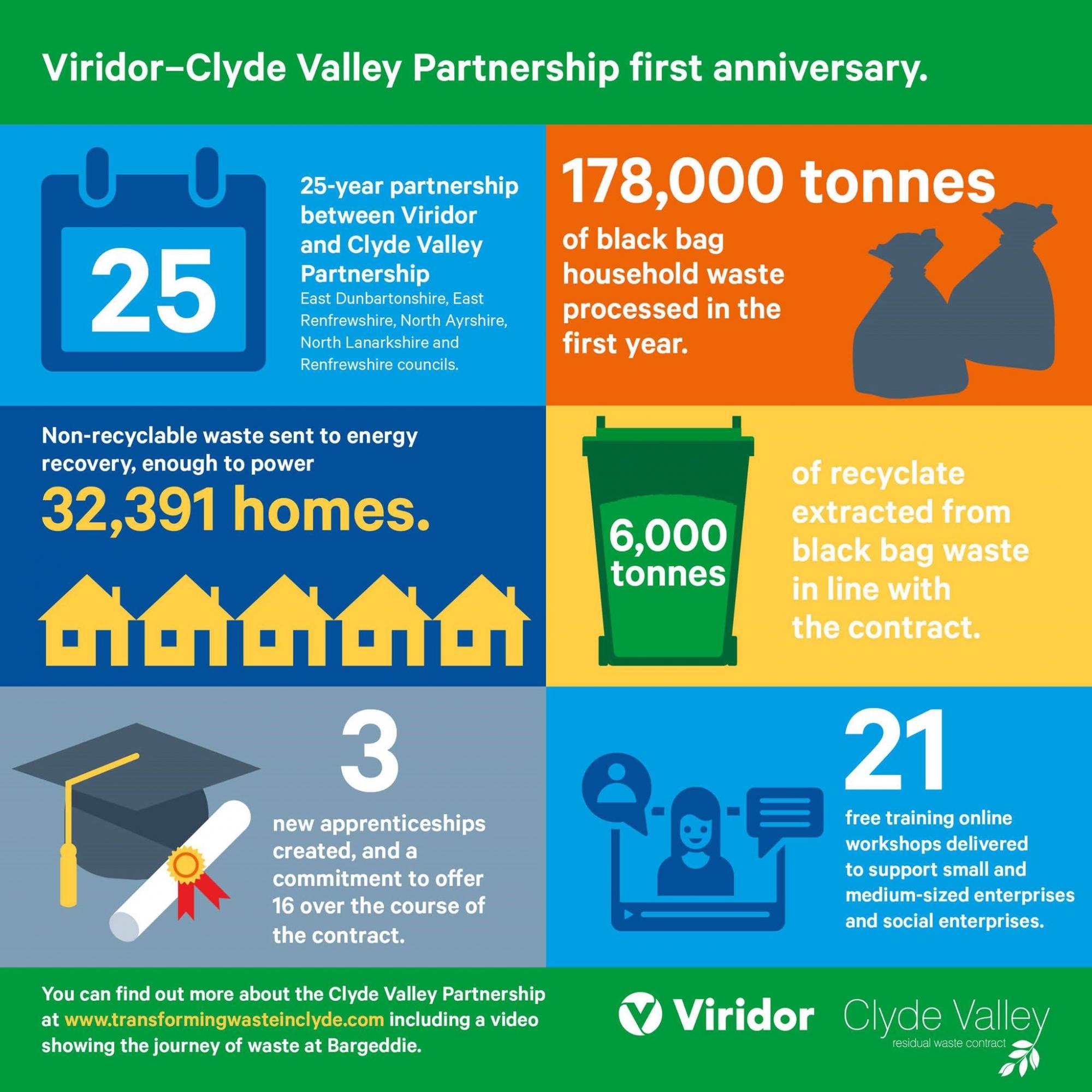In early 2020, East Dunbartonshire Council, along with four neighbouring Councils –North Lanarkshire, North Ayrshire, East Renfrewshire and Renfrewshire - came together with Viridor in a 25-year-long partnership to reduce waste going to landfill and use our rubbish to generate greener energy.
The project was the first of its kind in Scotland, and the Councils were some of the first to procure a compliant solution with the Waste Scotland Regulations 2012, and a ban on waste to landfill from 2025.
The project began after the publication of the Sir John Arbuthnott report (2009) which stated that savings could be achieved through Councils working together, and waste was one of the areas covered. At this time partnership working was unusual, and a 25-year contract was even more unusual.
The Council’s Waste service has been working with Clyde Valley partners since 2020 on the new treatment and disposal contract for all residual household waste.
This innovative process ensures all Council residual waste undergoes treatment through an Energy from Waste (EFW) processing plant in Dunbar, rather than disposal in landfill. By successfully diverting black bag household waste collections away from landfill in this way, the initiative not only helps Scotland meet its landfill diversion target, but produces energy direct to the national grid.
The first year of the partnership was a resounding success with 178,000 tonnes of black bag waste being processed and 6,000 tonnes of recyclate extracted from it.
The Waste Service worked in partnership with the Council’s Major Assets team to deliver a new Mavis Valley Transfer Station to manage around 24,000 tonnes of general waste, sent for processing and treatment through the Clyde Valley Contract.
The new facility was delayed due to the COVID-19 pandemic but was signed off and transferred to Viridor Clyde Valley on 1 February 2021.
From here, the waste is transported to a state of the art facility at Bargeddie Hub and, after the recyclate is extracted for further processing, the remaining non-recyclable waste is sent for energy recovery at Viridor's facility in Dunbar.
The Clyde Valley Waste Partnership non-recyclable waste generated enough electricity to power the equivalent of 32,391 homes and it is estimated that the contract will save approximately 20,000 tonnes of CO2 for the five Councils compared with the previous landfill contract.
Ann Davie, Depute Chief Executive, said, “We are proud to be involved in this ground-breaking partnership with our neighbouring local authorities, which represents a Scottish first. By sharing resources and working together in this way, we are making a significant contribution to meeting diversion from landfill targets as well as reducing our carbon footprint.”
Steven Don, Head of Contracts Scotland at Viridor, said "In January 2021, Viridor was pleased to mark the important one-year milestone with the Clyde Valley partnership councils. Not only is it important to find a meaningful way to attach a value to waste which cannot be recycled, it is crucial for Scotland to have landfill-diversion contracts in place ahead of Scotland's 2025 landfill ban.
“The partnership made history when the councils joined forces, the first to do so in Scotland, and it continues to collaborate to responsibly manage the regions' waste so this material can be treated as a resource and not rubbish."
